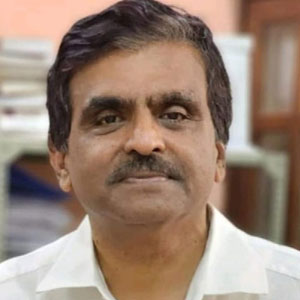M.S. Engineering College: Delivering Industry Relevant Engineering Education With Sustainability
By Dr Rana Pratap Reddy, Principal
The Engineering Education in India is navigating a transformative phase determined to align with the global sector that demands expertise in AI, quantum computing, and cybersecurity. By embracing hands-on learning, interdisciplinary approaches, and strong industry partnerships, colleges should focus on preparing graduates to address global challenges and contribute meaningfully to society through cutting-edge technologies and a commitment to sustainability.
Established in 2002, M.S. Engineering College (MSEC) is solving these challenges head-on by adopting a dynamic and innovative learning environment. The college is constructed on a 25 acre campus, close to the Bengaluru International Airport and is dedicated to providing high-quality technical education to the rural and economically backward communities especially to empower girls. The college has gone through a transformation from its traditional teaching methods to integrating advanced pedagogies and AI tools into every classroom.
Industry Oriented Curriculum
The college differentiates itself by offering an industry oriented curriculum that bridges the gap between academic learning and professional demands. Recognizing the global challenge of preparing students for rapidly evolving industries, MSEC structures its programs around four key pillars, namely sound fundamental knowledge, practical skills, communication and leadership.
To ensure industry relevance, the college integrates advanced technologies such as artificial intelligence, machine learning, and quantum computing into its courses, even beyond university requirements. “We collaborate with the Indian Institute of Science and NGOs to provide our students with exposure to rural challenges, such as sanitation and water management, encouraging them to develop solutions aligned with SDGs (Sustainable Development Goals)”, says Dr Rana Pratap Reddy, Principal, M.S. Engineering College.
The college’s counseling initiatives help rural students understand engineering’s potential, addressing the lack of career awareness. Its mission is to produce holistic professionals who are not only technically competent but also socially responsible and they can contribute towards nation building by being innovative and upholding integrity.
The MTech course in MSEC is designed to balance electives and dissertation. The students will have a chance to review of the basics, and specialize in the advanced areas of Networking, Databases, Operating Systems, Computer Architecture, Performance Analysis, Formal models, AI and Computer Graphics.
Modern laboratories & Cisco Centre of Excellence
MSEC’s infrastructure supports hands-on learning with modern laboratories and a Cisco Centre of Excellence. The classrooms are equipped with smart boards and computers which facilitate interactive learning, while the scenic view of the campus makes the students more focused. Moving beyond traditional teaching methods, MSEC has adopted AI-powered tools and immediate project implementation within the college.
Preparing students for industry demands, MSEC focuses on four pillars, namely fundamental knowledge, practical skills, communication, and leadership. In addition to the university curriculum, the college provides training in advanced capabilities including generative AI and quantum computing. The communication workshops help students to solve their problem while communicating with international clients, and the leadership programs will teach students integrity and ownership.
While offering standard programs such as computer science, civil engineering and electronics, MSEC distinguishes itself by aligning courses with SDGs. This encourages the students to apply their knowledge to global challenges, such as clean energy and women empowerment. “The mechanical engineering program focuses on sustainable technologies, while computer science students explore AI for healthcare. This approach not only enhances employability but also fosters a sense of purpose, preparing our students for leadership roles in a globalized world”, says Dr Rana.
Empowering Future Innovators
Most of the scholarship provided by the college is funded by MSEC itself, which supports economically disadvantaged students, with additional incentives for high-performing minority students. These efforts ensure access to world-class education for all, aligning with the college’s mission of inclusivity.
In order to sustain high-quality education, MSEC is addressing the shortage of its faculty by organizing regular faculty development programs, faculty workshops and seminars in coordination with the top institutions like IITs and NITs. The faculty receives training in new areas such as AI, machine learning, and quantum computing, making them current with the fast changes globally in technology. This learning culture enables MSEC to deliver industry relevant education despite the national decline in qualified educators.
MSEC integrates industry-academia collaborations, partnering with companies, such as cybersecurity and AI firms, which allows faculty to collaborate directly with industry specialists. Such tie-ups fuel the changes in curriculum and make them relevant to the trends of Industry 5.0. Students visit the industry and complete interdisciplinary problems where real life relevant problems are addressed such as rural sanitation. This hands on learning bridges the gap between classroom learning and industry expectations, enhancing employability.
Looking ahead, MSEC envisions becoming a leader in Industry 5.0 integration, with a curriculum designed to align with emerging technologies and societal needs. The college is planning to expand its virtual lab program and use the AI-based technology to train at scale, at a cost-effective level. Through its connection with international industries and world-standard institutes, MSEC aims to become a centre of innovation, so that the graduates will be ready to become a part of India in the technological future landscape.

